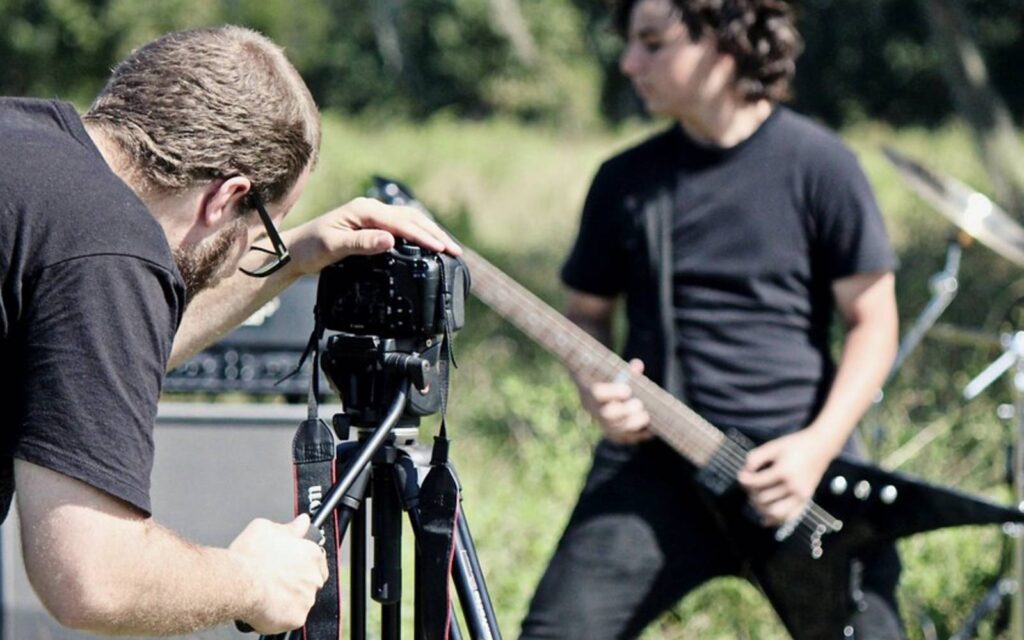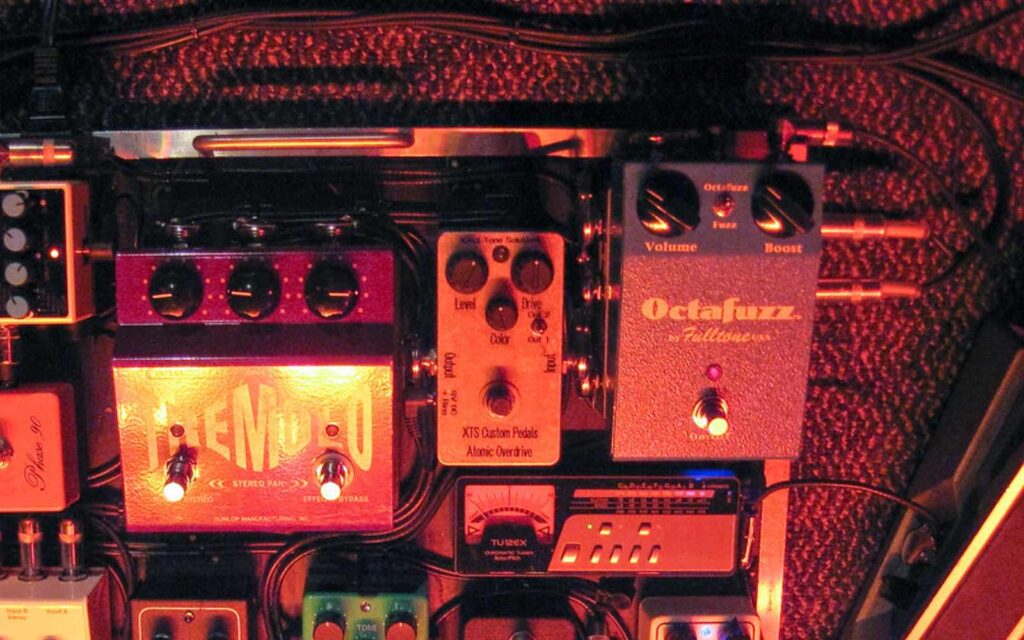Soul music is powerful - you’d be hard pressed to find any artist that isn’t influenced by it in some way or another.
Aaron Frazer’s debut record, Introducing… reads like a textbook on the soul superstars that have come and gone. It’s the work of someone with a profound appreciation for a bevy of different genres, and it’s very immediate that understanding Aaron’s lifelong appreciation for soul music is integral to the listening of Introducing…
Perhaps surprisingly, Aaron also expresses an admiration for a variety of Aussie soul and funk.
“Surprise Chef, Nai Palm and Hiatus Kaiyote – I love those guys,” he says. “Around like 13, I heard The Cat Empire for the first time and I loved it, hearing a contemporary band that had horns and was soulful, but also very irreverent and had some hip-hop. They’re a great band!”
Introducing… is a reflection of all these influences, plus some; “I love so many records, so many different artists, so many different genres, that I could spend the whole day talking about.
“This album felt like an opportunity to be eclectic, and not trying to put myself in a box, and for other people and listeners to not put themselves in a box.”
These old school vibes didn’t end with the songwriting, creating a traditional and true-to-form environment being something important to both Frazer and the album’s producer, Dan Auerbach of The Black Keys.
“Some of those old recordings just sound so weird, so wonky. If you’re just going about things in a sterile, by the book manner, you’re gonna be like ‘why doesn’t my record sounds like that!?’” Aaron laughs.
“For a lot of the recording and producing, there was a lot of experimentation of things like; ‘put the microphone on the ground, or under the drum set, let’s see what that sounds like’. Or what happens if we crank the preamp up way too much, let’s see what that sounds like,” he details.
“Especially on drums, no more than 3 microphones generally, and just doing other weird things, I love the super fancy microphones, but I also think that getting some old Radio Shack mics, using some old ElectroVoice and just seeing what it sounds like, that’s my favourite stuff. “
Something that’s common among those older, traditional albums that influenced Aaron is recording as a group, not isolated, as is so common today, to get that authentic, classic soul sound.
“This was the first one I’ve done that was the most ‘at once’, prior to this, with Durand Jones and The Indications (Frazer’s band) we’d just record the basics together.”
This group sentimentality something that’s of the utmost importance to Auerbach, something he likes to implement in all the albums he produces.
“I think the Auerbach method these days kinda reminds me of a barn raising, you get a bunch of people together, then get this giant structure together, when it might usually take you a month.”
There’s no doubt that Dan Auerbach has had a lasting impact on modern music, working with artists from a plethora of different genres. Aaron details that his relationship with Dan was definitely exciting, but a long time coming.
“He called me while I was making some dinner, and he was like ‘Hey, is this Aaron? This is Dan Auerbach.’ And I was like ‘oh shit!’,” he laughs.
“It was very surreal, but on the other hand, we’d had all these kinds of strange parallels in some of our musical journeys, in terms of our listening, and our influences”.
“When I was in high school, I got super into acoustic blues and country blues. Skip James, Robert Johnson, Sunhouse, Charley Patton, Jerry Butler, that kind of stuff. On the Black Keys album Brothers, he covered Jerry Butler’s ‘Never Gonna Give You Up’. It was just all these little connections to the point when he called me, it was this weird thing of ‘Wow this is surreal, but here we are.’”
The ensuing work they did was massively collaborative, with most of the album being penned in each other’s company.
“We wrote all the songs together, some were in varying stages of completion, like ‘If I Got It’, I had the chord progression, and I had this hook I wanted, and he helped me fill in the blanks.” Aaron says.
For these sessions, Dan went far and wide and got together some of the best session players and writers to ever grace the world music stage. It was a mix of “old timers”, and “young cats” as Aaron put it.
These “old timers” were legends like L Russell Brown, who’s worked with acts like Frankie Valli and The Four Seasons, Frank Sinatra and Donny Osmond.
“He loved my vocals, which was very flattering. He understood where I was coming from, and that’s hard. It’s hard to write for other people’s voices, that’s a gift in itself. But falsetto, it’s a separate instrument, and I love what we came up with.”
Auerbach also wrangled the legendary Memphis Boys, who had stories upon stories about working with some of the soul and funk trailblazers of the past, which Aaron says was an unforgettable experience.
“What I learned is just if you listen, talk a little less, listen a little more, the stories just come tumbling out of them. (Keyboardist) Bobby Wood, would just walk up to you and be like ‘I was in the studio with Aretha Franklin’ and tells you some crazy shit!” he laughs.
To Aaron, it was important to have these “old timers” and “young cats”; people from all walks of life, to get a range of views and opinions.
“That’s what I tried to cultivate when I produce my own records with The Indications, just getting a range of perspectives and experiences.”
Aaron’s love and understanding of music and its consumption flourished in Durand Jones and The Indications, where his and Durand’s opposite vocal styles; (“He’s got the fire, I do the ice”) provide a dichotomy, keeping the listener intrigued – something Aaron tried to actively implement again on Introducing…
“It’s something I thought about very consciously. I think a vocal group approach actually fits very nicely into how people listen to music these days.
“When you listen to music on Spotify or whatever, you’re listening on playlists. People are out there listening to albums, but a lot people listen to a different artist every couple of minutes.
“Given that it’s only me singing, I had to figure out how to use some tools a little creatively, so you’ll hear me go down into my lower range in several spots, and that was a conscious decision to try to grow as a singer, but also keep things interesting for the listener!”
For these sessions, Dan went far and wide and got together some of the best session players and writers to ever grace the world music stage. It was a mix of “old timers”, and “young cats” as Aaron put it.
These “old timers” were legends like L Russell Brown, who’s worked with acts like Frankie Valli and The Four Seasons, Frank Sinatra and Donny Osmond.
“He loved my vocals, which was very flattering. He understood where I was coming from, and that’s hard. It’s hard to write for other people’s voices, that’s a gift in itself. But falsetto, it’s a separate instrument, and I love what we came up with.”
Introducing… is out Friday January 8 via Dead Oceans/Easy Eye Sound.







